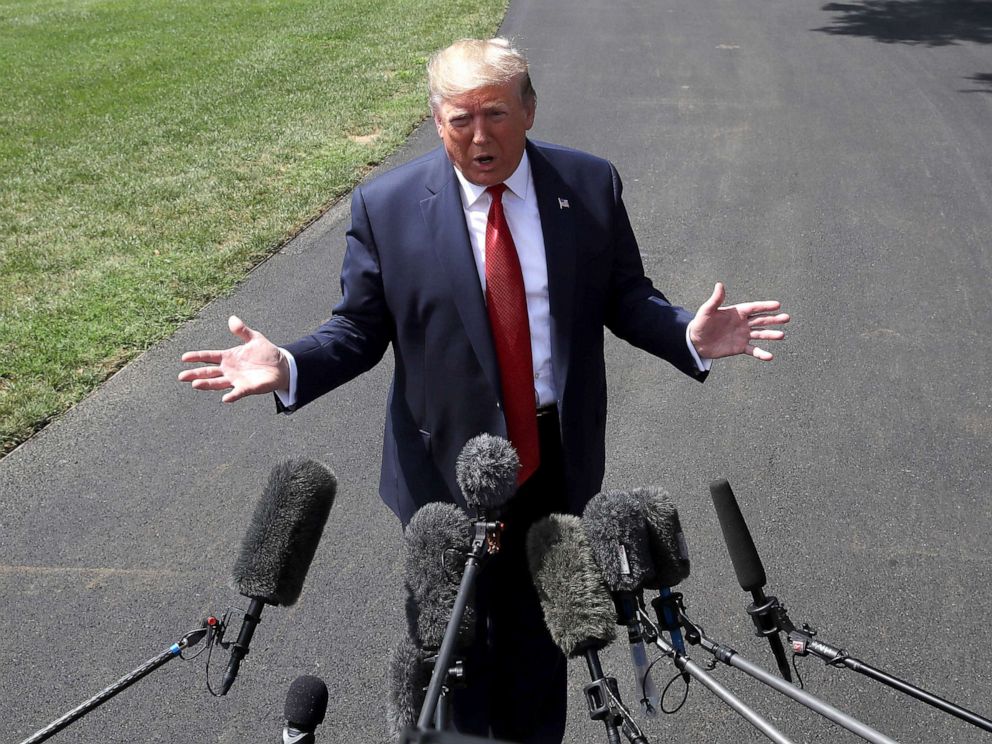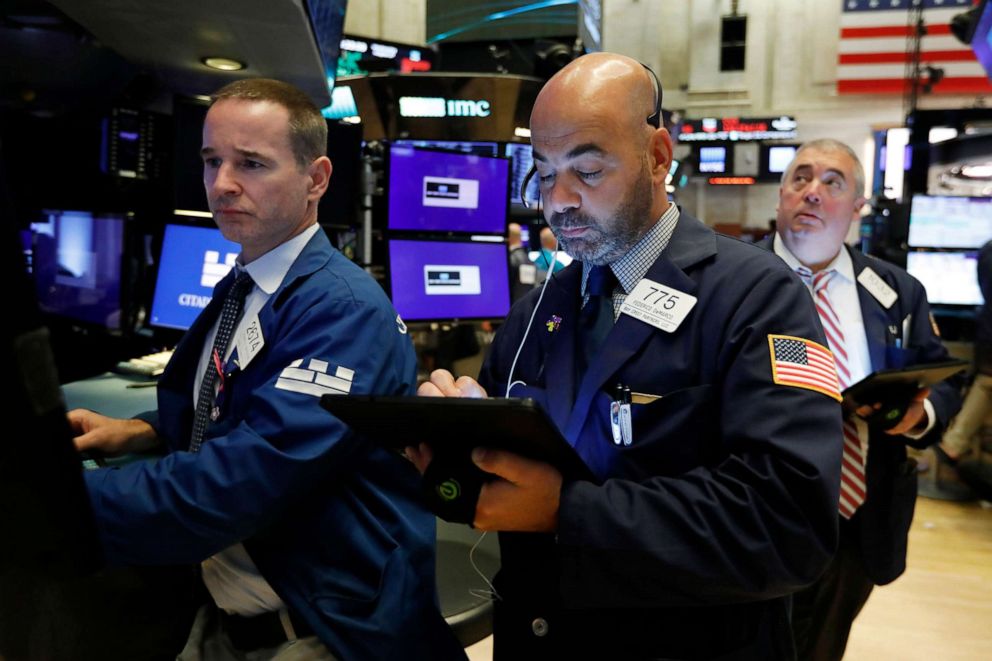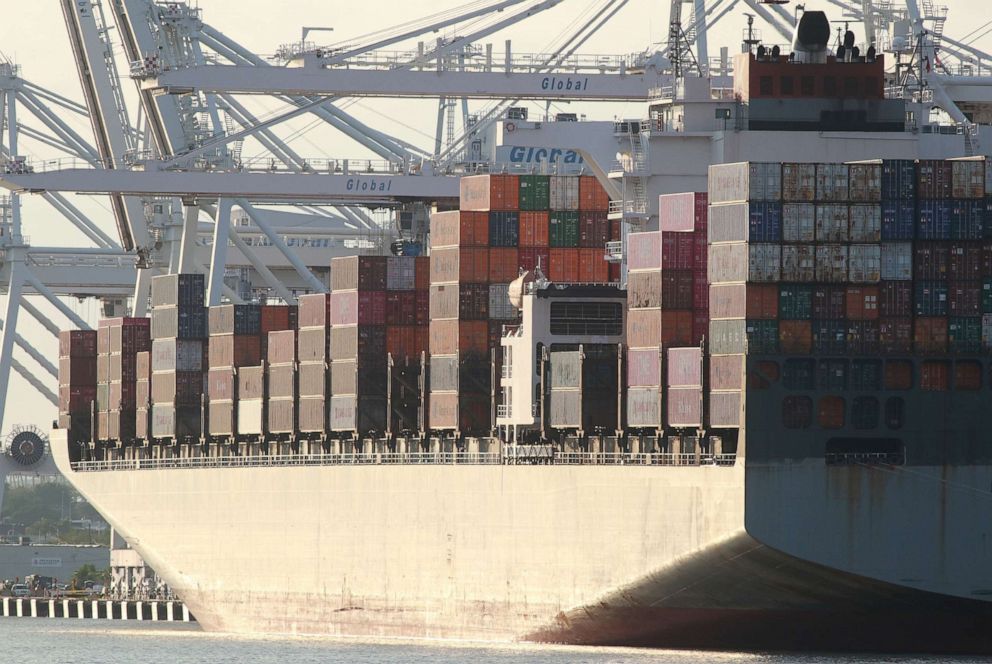As economy flashes warning signs, Trump suggests remedies, then argues they're not needed
The president has made the economy a central campaign message.
As the economy flashed warning signs of a possible downturn, President Donald Trump, with his political future potentially at stake, spent this week suggesting a variety of remedies -- even as he argued they were unnecessary.
"The economy has been really fantastic," he said at an Oval Office event Thursday.
His mixed signals on the economy come as he and his senior advisers try to stave off consumer concerns about a possible recession -- and as the president makes the state of the economy a central message of his reelection campaign.
"You have no choice but to vote for me, because your 401(k)'s down the tubes, everything's going to be down the tubes," the president told supporters at a rally in New Hampshire last week. "So whether you love me or hate me, you got to vote for me."

The White House is not considering any short term actions to jolt the economy but is developing a long-term "tax cuts 2.0 plan," possibly to be unveiled during the 2020 campaign, the president’s top economic adviser Larry Kudlow said Thursday evening.
“We're not looking for any near-term tax cuts, we're not looking for short-run stimulus, we don't anticipate anything but a solid strong economy, that the key point, that's our view,” Kudlow told reporters, expressing confidence in the state of the economy amid concerns of a slowdown.
Earlier this week, as negative economic news piled up, Trump repeatedly argued the economy was strong -- but in the same breath (or tweet) said the Federal Reserve needed to provide a fiscal boost by lowering interest rates.
One day, he said he was considering payroll tax cuts, after a White House spokesperson had denied it hours earlier; the next day, the president said they were off the table. He has floated indexing and a capital gains tax cut, too.
And he has turned to other news -- making policy pronouncements, then backtracking -- talking to reporters in marathon sessions at the White House and near his New Jersey golf club about Greenland (he was interested in buying it from Denmark), the Danish prime minister (she dismissed the idea of selling Greenland; Trump cancelled a trip to Denmark in response), guns (first he wanted "meaningful background checks," then he said the U.S. already had "strong background checks"), Jewish voters (he said they were "disloyal" if they cast ballots for Democrats, a charge widely labeled anti-Semitic), and a myriad of other topics.

Asked Sunday if his administration was preparing for a recession, the president dismissed the possibility of a downturn. "Honestly, I'm prepared for everything," he told reporters in Morristown, N.J. "I don't think we're having a recession."
On Wednesday, the Department of Labor said that the number of jobs added to the economy from April 2018 to March 2019 was actually half a million fewer than previously estimated. The president frequently touts the number of jobs created during his administration, and the downward revision -- according to the Associated Press, the largest in a decade -- was an unwelcome development.
That same day, the nonpartisan Congressional Budget Office (CBO) said it expected the federal budget deficit to grow to more than $1 trillion in the next fiscal year -- up from less than $600 billion when Trump took office.
As a candidate, Trump promised to pay off the entire deficit. The CBO attributed the jump in large part to this year's congressional budget deal -- blessed by Trump.

As the president repeatedly works to reassure American consumers that tariffs he has slapped on China do not impact them -- a false claim, according to economists -- the CBO said tariffs his administration has enacted are expected to lower the United States' GDP by about 0.3% in 2020.
The president and his advisers have reason to worry. Last week, the Bloomberg Consumer Comfort Index, which measures Americans' economic attitudes, fell to a seven-month low, and expectations for the economy's direction followed this week -- now at a five-month low .
While Kudlow said short-term stimulus actions have been ruled out at the White House, he suggested the White House’s tax cuts 2.0 plan – which he said is being developed now and is meant to be an extension of the president's previous tax cuts -- may be rolled out before the 2020 election.
“We have for a while been looking at something I call tax cuts 2.0, which will be a complication of our best thinking of additional tax relief incentives for the middle class, for blue collar workers, small businesses and so forth," he said. "Additional relief on top of the bill that passed in late 2017. We're not unfolding that bill anytime soon, my guess is it's likely to appear during the campaign. We're working with the tax leaders on Capitol Hill in both houses, and that is our tax program."
At campaign rallies in the weeks before the 2018 midterm elections, Trump repeatedly promised a 10% middle-c;ass tax cut was coming but then stopped talking about it after the election.
ABC News' Jordyn Phelps and Gary Langer contributed to this report.




